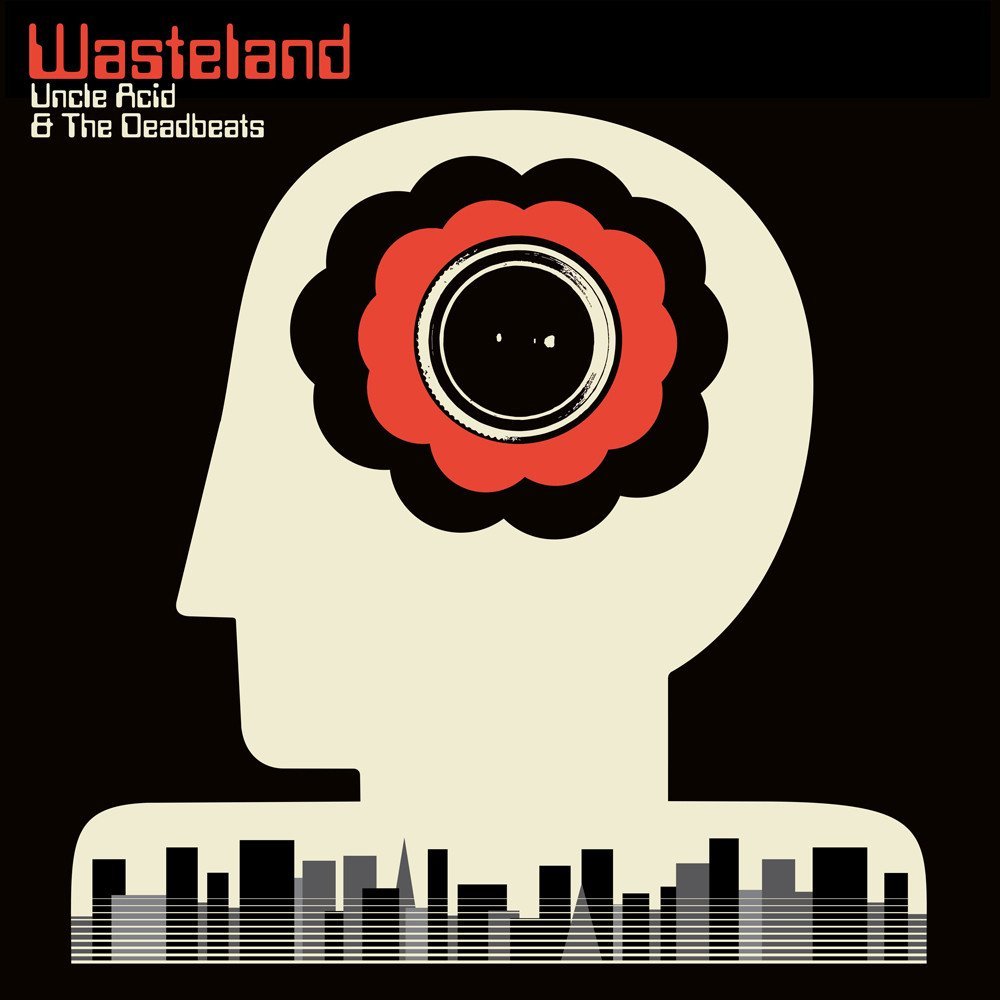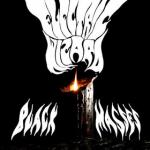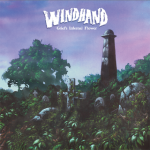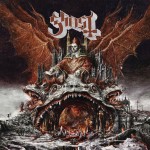Uncle Acid & The Deadbeats : Wasteland

By this point in their career, it would be foolish to expect a radical change from Uncle Acid & The Deadbeats. A brief overview of their career only shows a minor blip; their first record, the recently-reissued Volume 1 read as a loose one-man-band attempt at the sound their breakthrough record Blood Lust nailed perfect, with that record’s follow-up Mind Control dabbling with some psych pop flavors that were dropped for the next record, The Night Creeper. Hell, Wasteland is even another concept record, this time trading the gruesome murders of Whitehall and religious cults of the 70s for a dystopian sci-fi, uhhh… wasteland.
But this isn’t a bad thing, not by a long shot. Uncle Acid know what they are good at. Traditional heavy metal, of a late 60s and early 70s vintage, far before Judas Priest gave us the proper shape of what would become heavy metal as we know it, when organs and psychedelia and prog and a hazy, anti-hippie pagan doom seemed to pervade the spirits of men, a crooked counter to the messages of hope and peace and love that seemed to not be mirrored in the Nixonian world. And, for the most part, that is where Uncle Acid stays on Wasteland, offering slow Sabbathian crawls married to vocals that sound like if the vocalist of Coheed and Cambria played in a doom metal band, a charming and seductive counter to smoke-filled riffs that seem to pervade this record.
There are a few moments of experimentation on the record. “Blood Runner” rides along at a classic Iron Maiden pace, bass pushed up in the mix to jut against the harmonized guitars and galloping drums. It’s a tempting track, one of the very best on the record; it’s a shame the band doesn’t delve more consistently into this sound, considering how adept they are at it. Granted, it’s perhaps better that they don’t. While the rest of their songs feel unidentifiable, nodding to a mood and a psychic space, promo photos of bands cloaked in dark shadows and wide-brimmed farmers hats all in stoic blacks deep in some hippie’s forest home, an evil counter to that specter of failed love, “Blood Runner” is too obviously an Iron Maiden pastiche, the kind of trick that works once or twice but would too quickly feel like a rip-off if indulged in too much.
The songs stretch here, as they do on every Uncle Acid record, but the group has always had a keen ear for editing and for a sense of organic playing in their recordings, which keeps even the seven-plus-minute tracks from feeling bloated or aimless. This is the greatest strength of the group, the one that elevates them above effectively every other retro act. At the end of the day, if you put on a record of theirs, close your eyes and lay back, it sounds like a band, a band jamming together. That human sensation, that you are witnessing some organic expression of joy manifested in doom, psychedelic heavy metal, propels the material here as it does elsewhere in their discography, making them feel less like a gimmick and more sincere. It’s easy to get hung up on the factoid that they use retro mics and mixing boards and presses to make their songs sound like a recently-unearthed late-’60s classic, but that misses the purpose; it isn’t to ape some backwards nostalgia for a time most of us weren’t around for, but to force them into something at least seemingly more organic and immediate than endlessly re-recorded and re-processed ProTools sessions. It’s an affect, yes, but so too is all art, and an affect that works at evoking what it sets out to do is a good thing and not a bad thing.
Uncle Acid has never really been a band to use sonic evocation to outline their concepts. Blood Lust and forward, despite all having different concepts, ranging from Satanic murders to est/Scientology-style cults to Jack the Ripper to a post-climate change and nuclear war dystopia, have all mined more or less the same sound. That’s because, to the band, these concepts are clearly a way to arrange and pace a record more than something absolutely necessary to understanding the material. They reach for a singular internal element, one that unifies all of them; powerlessness, oppression, terror. Doom. To be doomed is not to depair; it is to be utterly unable to resist your killer, your destroyer, your suffering, your death. The band switches between perspectives of the doomed and the dooming, the oppressed and the oppressor, but the sense is always the same. They focus on negative catharsis, a sickly weeping smile before dying. It’s a powerful image, and one compelled by what seems like an endless well of psychedelic heavy metal riffs. They may not change much between records, but so far, they haven’t needed to. They still don’t.
Similar Albums:
 Electric Wizard – Black Masses
Electric Wizard – Black Masses
 Windhand – Grief’s Infernal Flower
Windhand – Grief’s Infernal Flower
 Ghost – Prequelle
Ghost – Prequelle
Langdon Hickman is listening to progressive rock and death metal. He currently resides in Virginia with his partner and their two pets.

